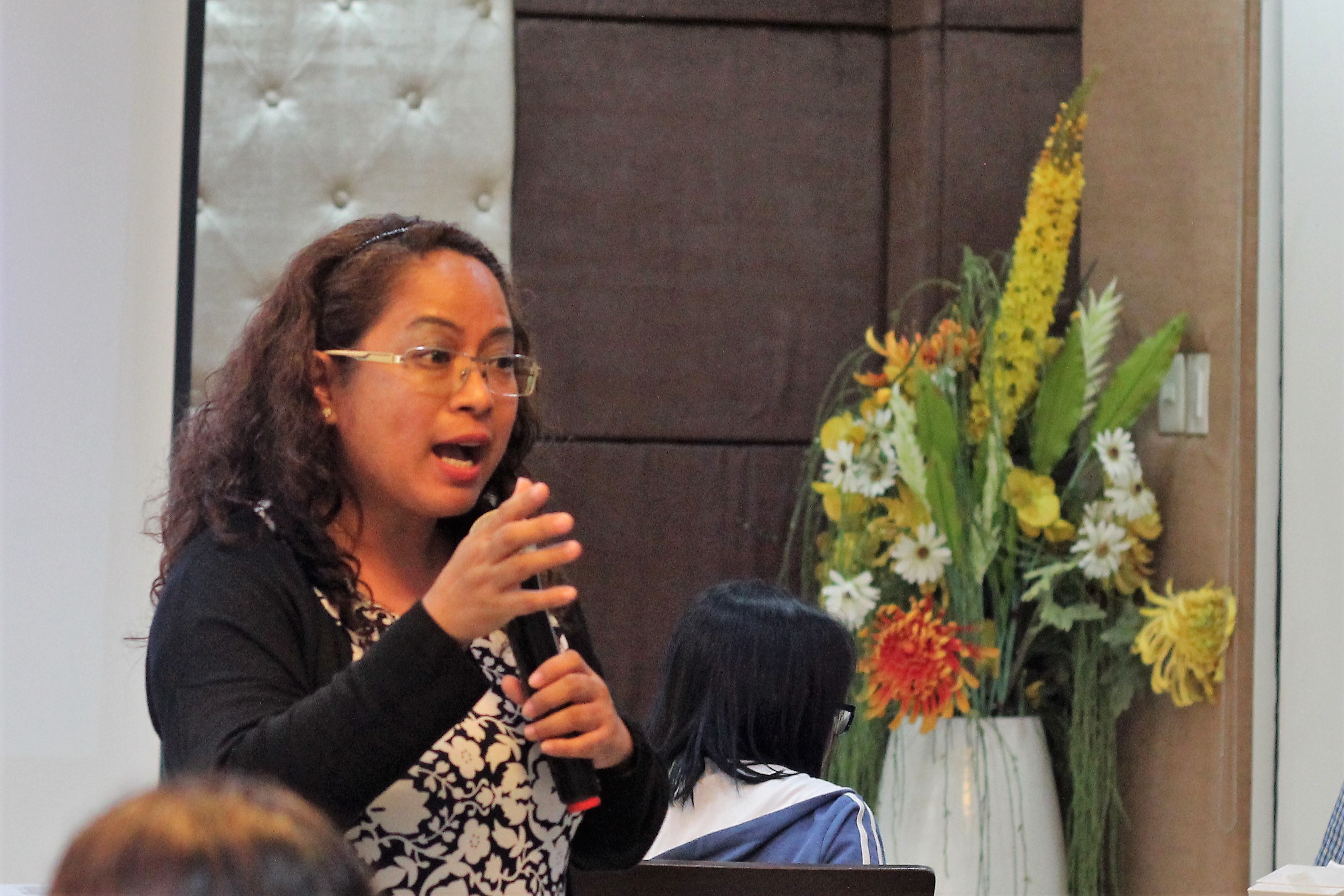
MANILA, Philippines – For persons with disabilities (PWD), the phrases "keep going" and "don't give up" are more than just encouraging reminders – they are a way of life.
According to the World Health Organization's 2011 World Report on Disability, more than a billion people are estimated to live with some form of disability. That accounts to about 15% of the world’s population based on 2010 global population estimates. In the Philippines, there are at least 1.4 million Filipinos with disabilities, according to a 2010 government census.
In Western Visayas, there are Meanwhile, there are at least 138,000 persons with disabilities. Four of these PWDs have given a face to the struggles commonly experienced by their sector in the Philippines. (READ: Sunflower farm in Quezon plants seeds of hope for PWDs)
Living with disability
A native of Tapaz town in Capiz, Katchry Jewel Golbin has never seen the world since she was born blind in 1990.

Fast forward 26 years later, however, she has captured the admiration and affection of thousands of people she herself have never seen. This is after making a name for herself in the 11th season of the television program“La France a un Incroyable Talent" (France Got Talent) in 2016.
“I don’t think disability really makes a difference in my life; I mean, I am facing challenges just as any normal person does. For visually impaired artists like me, the biggest challenge would be the interaction with the public using body language,” Golbin said in a phone interview.
Like Golbin, 41-year-old Arvin Fidel Sarabia is looking forward to a time when people would learn to treat PWDs properly.
Sarabia, who lives with poliomyelitis, would find it difficult to secure a seat in public utility vehicles during peak hours as fellow passengers would occupy seats clearly marked and reserved for PWDs, senior citizens, and pregnant women.
According to Sarabia, fighting discrimination – especially in the workplace – is also a constant challenge among PWDs like them.
“Until now there are clients and employers who are still preferring physically fit employees over skillful disabled persons. In fact, in the past, working abroad was really hard for me because other countries discriminate against anyone in the workplace because of appearance,” he said.
Sarabia's experience is validated by a 2013 study of the Philippine Institute for Development Studies which said that a majority of PWDs in both rural and urban areas are considered to be engaged in "vulnerable employment" without formal or stable jobs. In fact, most of the working PWDs are either self-employed or unpaid family workers.
A misunderstood sector?
“Wow! That was a very good story,” Hazel Villa once responded to her student who narrated in class how her mother died.
With her poor hearing, Villa would often find herself in confusing discussions like this. Diagnosed with severe to profound sensorineural hearing loss in both ears at the age of 12, Villa, shared that she bears the daily stress of mishearing certain words, straining to hear correctly, and getting ridiculed by some people. (READ: PWDs and the Philippine media)

Similarly, for 22-year-old Eleazar Danila, going about his daily life serves as a challenge. He used to be an adrenalinej unkie. Things changed when he learned that he had epilepsy. At first, Danila patiently followed his doctor’s advice: take things slow, rest for a minute, avoid sources of stress, and take medications on time.
According to Danila, following the doctor's advice did not take away the misconceptions people have about his condition.
“If there is one reaction that seriously annoys me...it’s when people ask me if I am mentally retarded. Perhaps people think this is a ‘safe’ way to talk about my disability.. I am not mentally retarded. I just need to relax and not to pressure myself with things,” Danila said.
In a 2018 study, the UP Center for Local and Regional Governance (UP CLRG) said that the Philippines is still far from becoming PWD-inclusive, citing that only 60% of local government units have a Persons with Disability Office. (READ: FAST FACTS: What persons with disability are entitled to)
Despite such challenges, Golbin, Sarabia, Villa, and Danila have not let their disabilities stop them from pursuing their dreams. According to them, having the correct mindset – that living with some form of disability does not make them a victim – is important.
“Don’t think of yourself as disabled person. Think of yourself as another dreamer, another person who wants his life to be improved, another being who has hopes, dreams, aspirations and capabilities,” Golbin said.
This positive perspective is shared by Villa. "Finding that purpose is a beautiful and unique journey that results into a contented soul," she said. – Rappler.com
Michael Dejando graduated from West Visayas State University and is the associate editor of La Purisima - Oton, Iloilo.